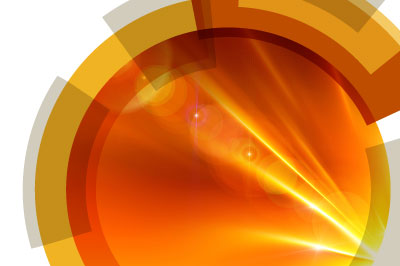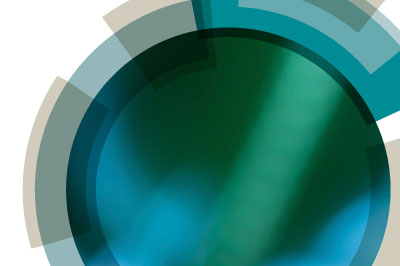A one-day symposium organised by the Environmental Chemistry Group of the Royal Society of Chemistry. The 2016 ECG Distinguished Guest Lecture will be provided by Professor Alan Robock (Rutgers University).
Where: The Royal Society of Chemistry, Burlington House, Piccadilly, London, W1J 0BA
When: Tuesday 22nd March 2016 12 noon - 5.15pm
Lunch provided
Professor Joanna Haigh (Imperial College London)
Professor Joanna Haigh is the co-Director of the Grantham Institute on Climate Change and the Environment, past-President of the Royal Meteorological Society and Director of the Science and Solutions for a Changing Planet NERC Doctoral Training Partnership at Imperial College London. She has published widely in the area of radiative transfer in the atmosphere, climate modelling, radiative forcing of climate change and the influence of solar irradiance variability on climate. She was appointed CBE for her services to physics in 2013.
"Climate geoengineering: some fundamentals"
Professor Haigh will provide the introduction to the seminar, speaking on the fundamental scientific idea behind geoengineering the climate to implement scheme that will compensate for global warming. She will outline the various approaches that have been proposed, each of which raises particular issues of feasibility, reliability, cost and potential side effects. In all cases there are issues of implementation, international agreement and governance. And over-riding all this is the consideration of whether geoengineering would buy time while we de-carbonise our economies or just provide an excuse for making less effort.
Dr David Santillo (Greenpeace Research Laboratories)
Dr David Santillo is a Senior Scientist with the Greenpeace Research Laboratories, based at the University of Exeter, UK. David is a marine biologist and environmental chemist who has also represented Greenpeace at a range of national and international forums and stakeholder discussions on climate geoengineering over many years, as well as at technical and policy meetings of parties to the London Convention and Protocol. David was a co-author on the 2012 CBD report on Impacts of Climate-Related Geoengineering on Biological Diversity.
“Climate geoengineering: how could it be regulated?”
Dr Santillo will speak on the policy of geoengineering and the fuzzy line between scientific research and test-bed deployment. The potential scale, transboundary nature and uncertainty of both intended and unintended consequences of geoengineering raise profound questions about whether and, if so, how such activities could ever be effectively governed. If we are to be prepared to make defensible decisions about what is or is not acceptable, it is a task that must be addressed. The first international rules on marine geoengineering, agreed under the London Protocol in 2013, provide an example of what can be done in a specific context. Could a similar model prove effective elsewhere?
Professor Michael Stephenson (British Geological Survey)
Professor Mike Stephenson is Director of Science and Technology at the British Geological Survey. He began his career as a schoolteacher in rural Africa, but returned to Britain to pursue research in the Middle East and Asia. He now runs the BGS national geoscience and data centre Science Programme, with 520 scientists and technologists. He has professorships at Nottingham and Leicester universities, has published over eighty peer-reviewed papers, and is editor-in-chief of an Elsevier geological journal. His recent book 'Shale gas and fracking: the science behind the controversy' was published in March 2015.
“Climate geoengineering: carbon capture and storage”
Professor Stephenson will speak on carbon capture and storage, and how predictions like those of the International Energy Agency suggest increasing coal use into the future, and that coal will remain the backbone of electricity generation for many years to come. In these circumstances it seems sensible to look for ways of making coal power stations more efficient but also for capturing CO2 from flue gases. The latter is part of the process known as carbon capture and storage which I explore in this talk, including how capture and geological storage might work. But is there enough geological storage space in rocks around the world and will the CO2 leak?
Distinguished Guest Lecture: Professor Alan Robock (Rutgers University)
Professor Alan Robock is a Distinguished Professor from the Department of Environmental Sciences at Rutgers University and an editor for Reviews in Geophysics. His research interests include nuclear winter, volcanic eruptions, climate and geoengineering. He has previously spoken in TED talks: https://www.youtube.com/watch?v=qsrEk1oZ-54. More about Professor Robock may be found on his website: climate.envsci.rutgers.edu/robock/robock_bio.html.
"Smoke and Mirrors Not the Solution to Global Warming."
Professor Robock will provide the Distinguished Guest Lecture, speaking on solar radiation management (SRM) by injecting particles into the stratosphere, brightening clouds, or blocking sunlight with satellites between the sun and Earth. If there were a way to continuously inject SO2 into the lower stratosphere, it would produce global cooling, stopping melting of the ice caps, and increasing the uptake of CO2 by plants. Although no systems to conduct stratospheric geoengineering now exist, a comparison of different proposed injection schemes, using airplanes, balloons, and artillery, shows that putting sulfur gases into the stratosphere would be inexpensive. But there are at least 27 reasons why stratospheric geoengineering may be a bad idea. These include disruption of the Asian and African summer monsoons, reducing precipitation to the food supply for billions of people; ozone depletion; no more blue skies; reduction of solar power; and rapid global warming if it stops. Furthermore, there are concerns about commercial or military control, and serious degradation of terrestrial astronomy and satellite remote sensing. Global efforts to reduce anthropogenic emissions (mitigation) and to adapt to climate change are a much better way to channel our resources.
Delegate Rates
Non-members of ECG - £35 (£25 early bird rate - all bookings before 12th February)
ECG members and concessions - £30 (£20 early bird rate - all bookings before 12th February)
There are a limited number of free places available for members, e.g. the unemployed. If you would like to apply for one of these places, please raise your case with meeting organiser.
To register online, please visit: https://events.rsc.org/rsc/833/register before 14th March. Delegate fees are non refundable. For enquiries, contact the meeting organiser, Dr Rowena Fletcher-Wood, ecg.dgl@gmail.com.










